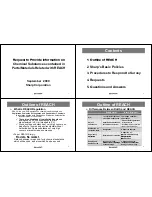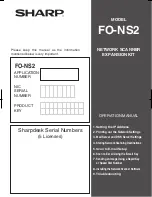
18
Kaspersky Anti-Spam 3.0
2.2.3. Checks using external services
In addition to the analysis of message text and headers, Kaspersky Anti-Spam
allows a number of the following checks involving external network services:
•
availability of a DNS record for message sender's IP (reverse DNS
lookup);
•
the presence of the sender's IP address in a DNS-based real time black
hole list or lists (DNSBL);
•
a check of the sender's address for compliance with SPF (Sender Policy
Framework) policy for the domain containing the server used to send the
message;
•
a check of addresses and links to sites in message text for the presence
in the Spam URL Realtime Blocklists database –
www.surbl.org
.
•
recognition of e-mail messages using the UDS (Urgent Detection System)
technology.
All the checks listed above, except for UDS, are based on the use of the DNS
protocol and as a rule they require no additional network configuration.
2.2.4. Urgent Detection System
Urgent Detection System is an original technology of spam detection developed
and supported by Kaspersky Lab. It is based on the following principles:
•
A message being analyzed is used to select a collection of properties,
which can be used to identify the message. The set of properties may
include header information, text fragments and other information about
the message being processed.
•
Filtration server uses the properties thus collected to generate a small
UDS request and sends it to one of UDS servers of Kaspersky Lab.
Since the product does not transmit to external servers any data that
could allow viewing the recipients or the text of the processed mail, the
use of this method does not pose any risk to the safety or confidentiality
of your information.
•
The UDS server checks the received request against a database of
known spam. If the request matches a known spam sample, a message
will be sent to the filtration server informing that the e-mail is very likely
to be spam. The information will be taken into account during
assignment of a certain status to e-mail.
















































